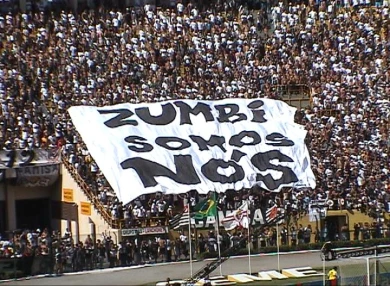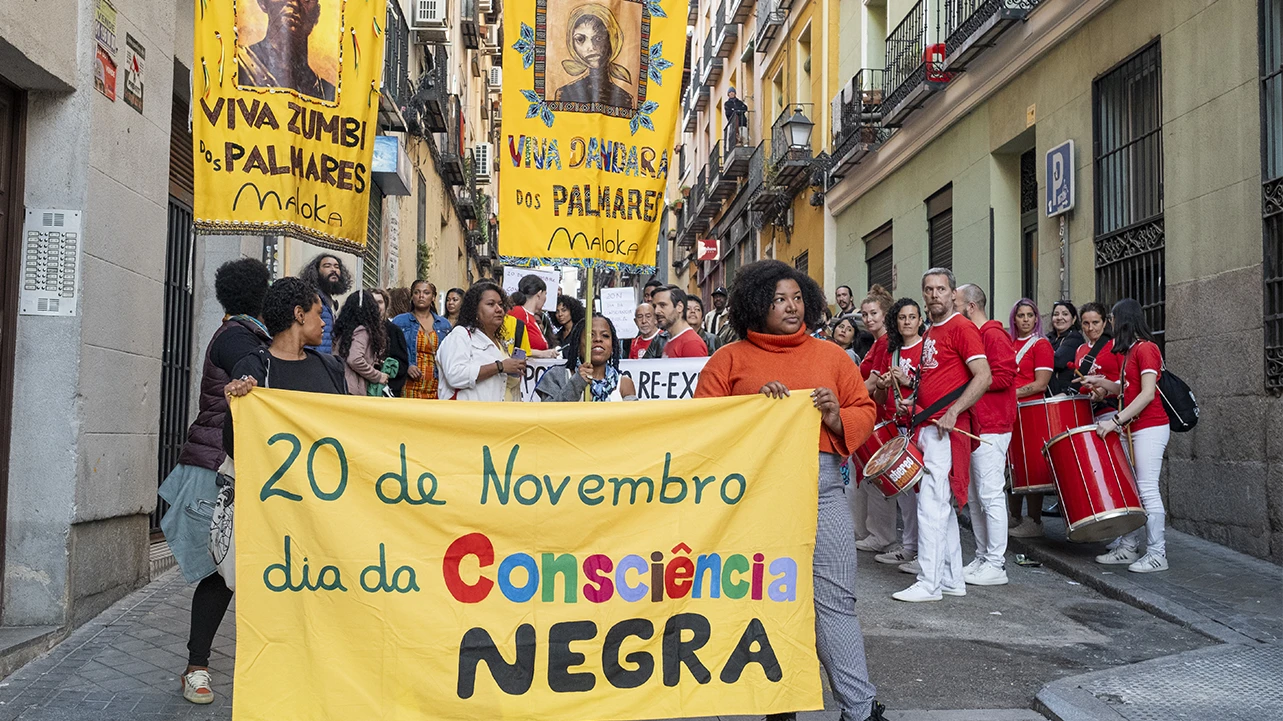
Thuanny Chagas, Homenaje a Zumbi dos Palmares y Dandara (Homage to Zumbi dos Palmares and Dandara), 2023
Held on Wednesday, 20 November 2024 - 7pm
- Location
- Nouvel Building, Auditorium 400 and online platform
- Capacity
- 400 people
- activity.details.languaje
- Spanish and Portuguese
To celebrate Black Awareness Day on 20 November, the figure of Zumbi dos Palmares, a key figure in the fight against slavery in Brazil, will be commemorated on the same date of his murder. The Maloka Association, in collaboration with Museo Situado, will pay homage via a collective concert which, through music, dance and the interventions of anti-racist projects such as the Sindicato de Manteros (the Union of Street Vendors), honours the legacy of the Black and Afro-descendent population in Brazil. The activity also looks to heighten awareness of their invaluable contribution to culture and the difficulties racism creates.
Art and culture have always been present in the daily life of this community as they operate as a form of resistance and a medium to maintain the link with their roots, keeping hope alive in the process, despite life’s adversities. To a large degree, Brazilian musical rhythms draw inspiration from this African root and the concert performed here opens a space to weave community ties between the different cultures that live in Madrid, starting with respect and recognition for Afro-descendent heritage as a positive and integrating pillar of society.
The activity is held within the framework of Anti-racist and Anti-colonial Autumn, an initiative of different anti-racist collectives and organisations from Madrid to honour the memory of Lucrecia Pérez, the first murder in Spain to be officially ruled a hate crime. Numerous collectives and organisations have come together to organise cultural, community knowledge-creating and collective memory activities centred on migrant and racialised people that are reference points in the Spanish State and united under the slogan: “Without anti-racism there is no future and only by uniting can we be heard”.
Inside the framework of
Anti-racist and Anti-colonial Autumn
Organised by
Museo Situado and Asociación Cultural Brasileira Maloka
Organised by
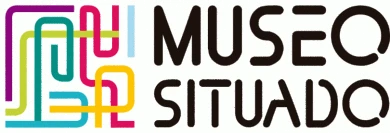
Participants
Jeane Bonfim is a dancer, percussionist and capoeirista. In Madrid she previously worked as a percussion teacher, forming the group Batucada Feminista da Maloka, who make percussion instruments with recycled material. She currently participates in different Afro-Brazilian dance projects, investigating and interpreting the dance genre to regain ancestry and to recover art forms that have gone unnoticed for many years.
Hilton Cruz is a percussion musician. In 2006, he toured Europe with the companies Rio Samba Show, Brasil Pandeiro, Carnaval Brasil and Batucada Carioca and currently plays as a percussionist in the groups Samba y Algo Más, Só Canto Samba, Pagode da Piscina, Feijão com Samba and Sorriso Sacana.
Batata Galiza is a multi-percussionist with broad professional experience in both Brazil and Spain. He has lived and worked in Spain for over thirty years, with notable performances at different events organised by Madrid City Council and on television programmes. As a percussionist, he has joined a number of international samba groups, and is currently part of the Samba de Terraza circle.
Gil Gomes is a percussionist who has lived in Spain since 2010, participating in Forró du Luiz in Sala Barco and working on different collaborations with artists from the Brazilian scene in Madrid, as well as playing at an array of venues and concert halls. He has collaborated with Spanish artists such as Rosendo, Rodrigo Mercado, Diana Siliberte and Carmen Carmona, and currently plays percussion with the group Litoral Soul, in addition to working with other artists.
Okan Kayma is a musician, percussionist, music producer and educator who works across multiple artistic languages. In 2011, he conducted more in-depth research into the world of popular Brazilian music and explored further his work as an art educator, which culminated in the publication of the book Caderno de Ritmos Brasileiros e Instrumentos de Percussão (2015).
Lycanto is a musician, dancer and composer from the Democratic Republic of the Congo. In 2006, in New Delhi, he joined the group TONNERRE, gaining renown and popularity in the Afro-Indian community via Headlines Today Television. He currently lives in Spain, where he develops his own world music art project.
Eduardo Marreta is a musician who, in addition to the cavaquinho and guitar, dextrously plays different percussion instruments and performs his own compositions. He has participated in different cultural shows in Spain, including in the Teatro Real, and currently plays with Samba y Algo Más at Café Berlín and is part of different samba projects, as well as playing with Roda de Choro in Madrid.
Muzzangue is a multidisciplinary visual artist, dancer, choreographer and social anthropologist with a postgraduate degree in the Culture and Thought of Black People and Gender Equality. In 2002, he received the “Best of Brazil in Europe” award from High Profile magazine. He has also collaborated with renowned national and international artists.
Nar Ndiaye is a percussionist who plays the djembe, sabar, tama and other African percussion instruments. From his parents, both griots — storytellers in poetic and musical forms — he inherited his way of telling stories and teaching music. A prolific presence in Madrid’s music scene, and in other cities in Spain, he is part of different projects as a dancer and backing or musical percussionist, for instance the Afrojam project.
Wellington Nego Tinho is a singer, composer, guitarist and percussionist. Since his arrival in Madrid, he has played and danced with different ensembles while developing his solo work, which encompasses samba, bossa nova and popular Brazilian music. For many years he has performed on different stages in the Spanish capital, most notably participating in different editions of FITUR, the International Tourism Trade Fair, and with different Spanish television channels during carnival.
Edimundo Santos is a singer, composer and guitarist. In 2014, he was invited by the Teatro Defondo company to be the musical director on the work La ópera del malandro, by Chico Buarque, which was presented for a month-long period at Madrid’s Teatro Fernán Gómez. He also participated at FITUR 2024.
João Silva is a singer, composer and guitarist. His most recent project LitoralSoul, accompanied by Brazilian musicians living in Madrid, reflects the fusion and authenticity of his live performances, including songs he has written. His new project, Brisa Mar, compiles songs from his original repertoire and aims to promote and help to preserve culture and natural resources from his native city.
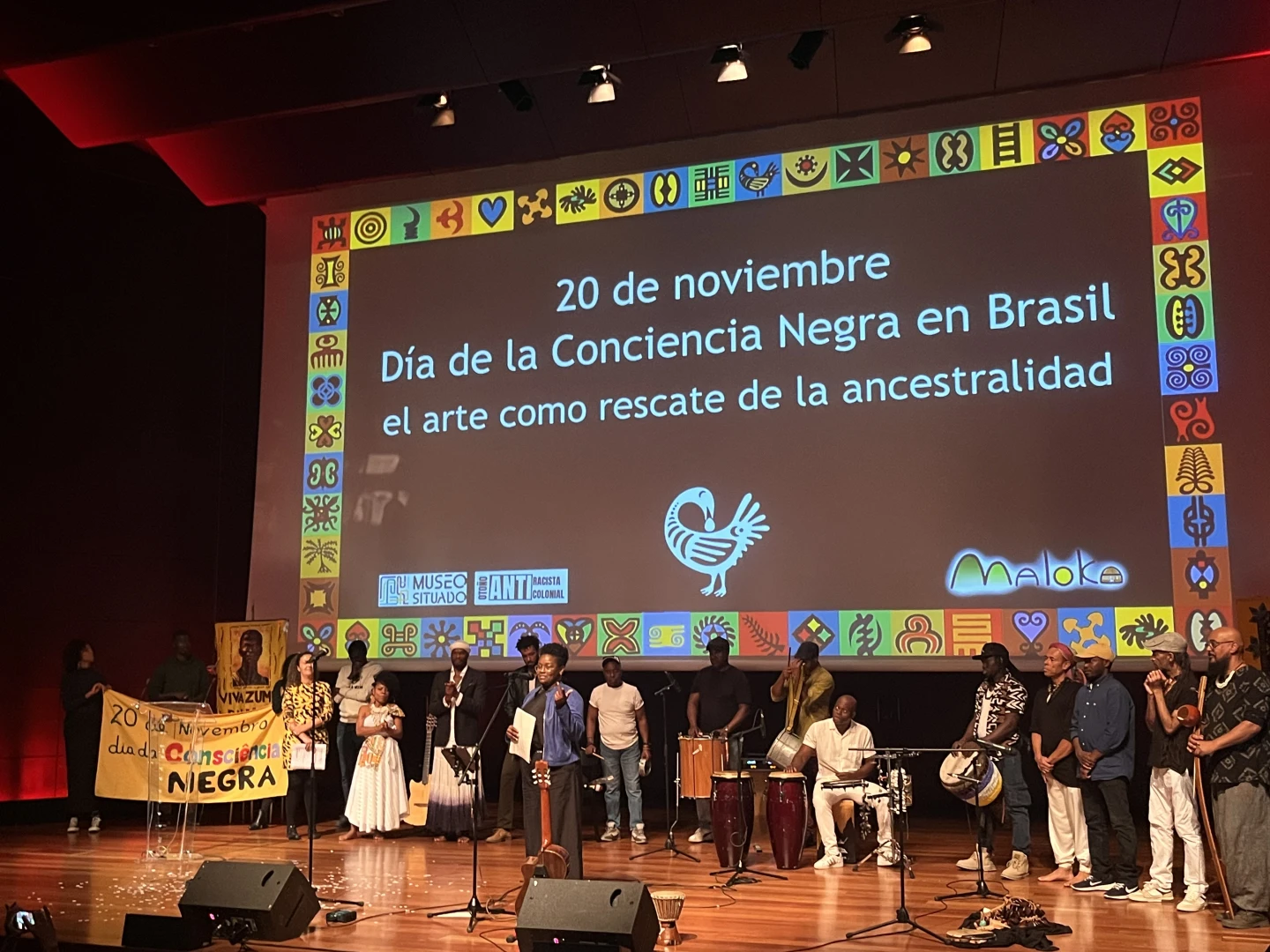
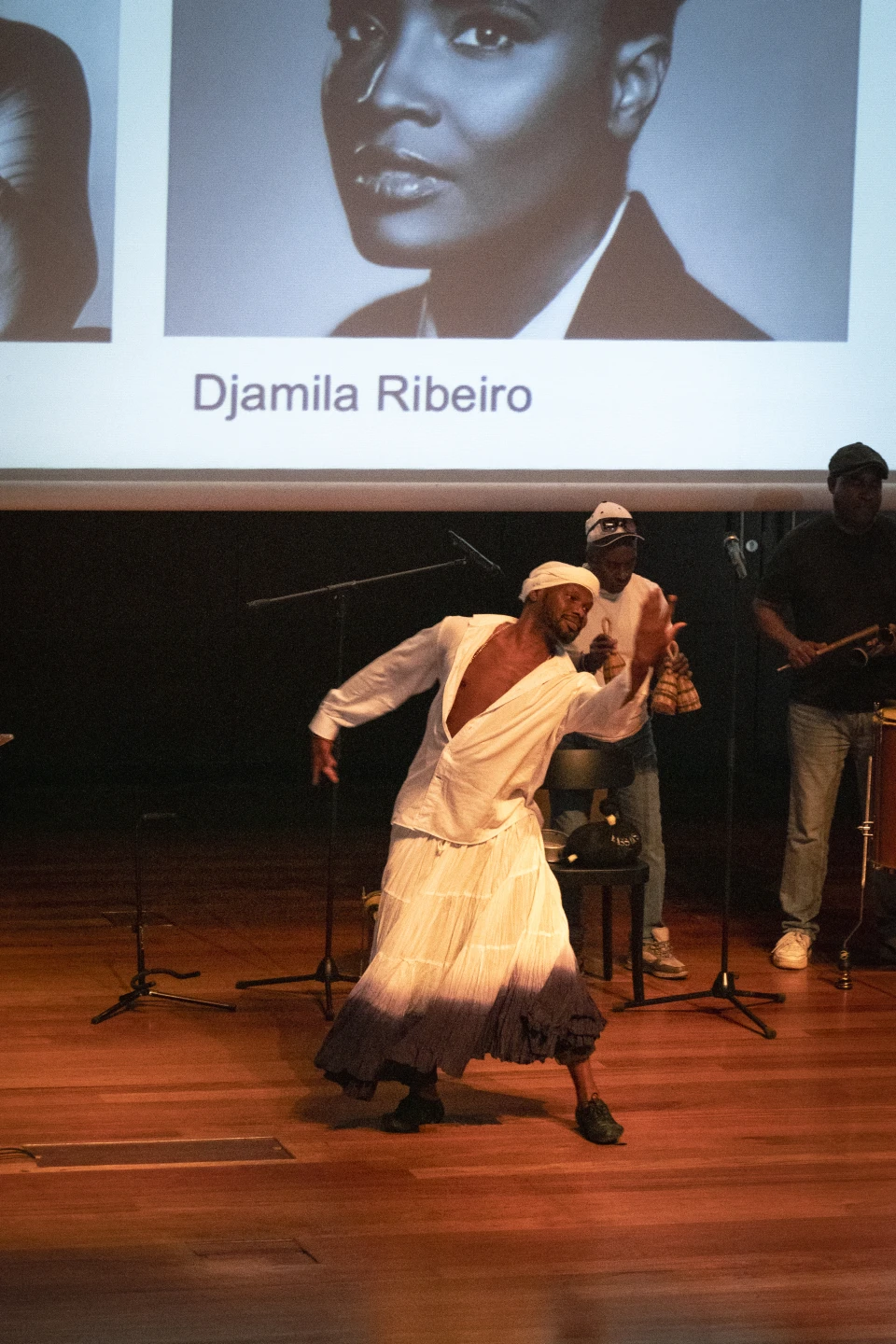
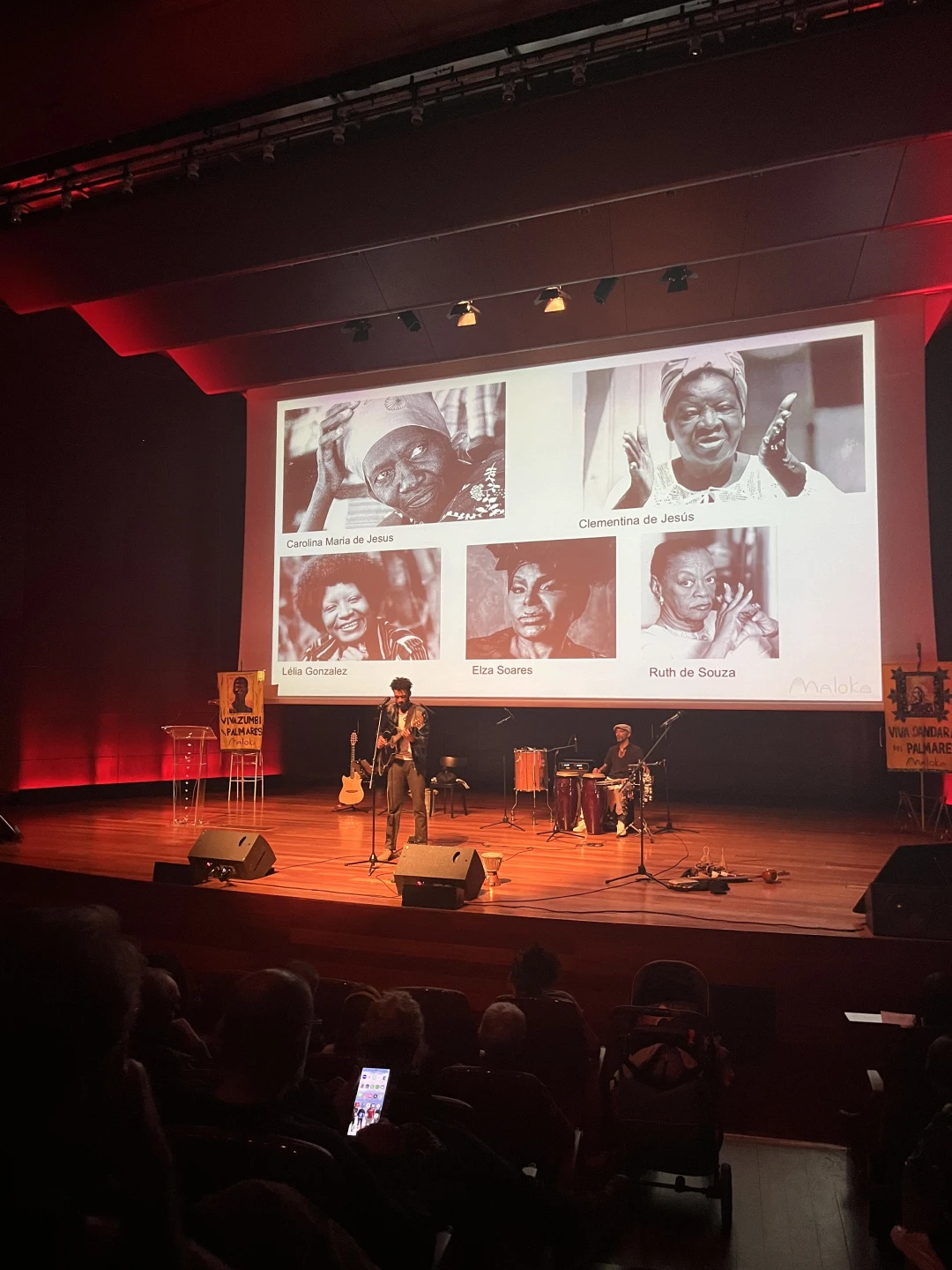
Más actividades

Difficulty. Forms and Political Effects of Deviation in Writing and Contemporary Art
23 February – 14 December 2026 – Check programme
Difficulty. Forms and Political Effects of Deviation in Writing and Contemporary Art is a study group aligned towards thinking about how certain contemporary artistic and cultural practices resist the referentiality that dominates the logics of production and the consumption of present-day art. At the centre of this proposal are the concepts of difficulty and deviation, under which it brings together any procedure capable of preventing artistic forms from being absorbed by a meaning that appears previous to and independent from its expression. By ensuring the perceptibility of their languages, difficulty invites us to think of meaning as the effect of a signifying tension; that is, as a productive and creative activity which, from the materiality of art objects, frees aesthetic experience from the representational mandate and those who participate in it from the passiveness associated with tasks of mimesis and decoding.
The economy of the referential norm translates the social logic of capitalism, where insidious forms of capturing subjectivity and meaning operate. In the early 1980s, and adopting a Marxist framework, poet Ron Silliman highlighted how this logic entailed separating language from any mark, gesture, script, form or syntax that might link it to the conditions of its production, rendering it fetichised (as if without a subject) and alienating its users in a use for which they are not responsible. This double dispossession encodes the political strategy of referential objectivity: with no subject and no trace of its own consistency, language is merely an object, that reality in which it disappears.
The political uses of referentiality, more sophisticated today than ever before, sustain the neoliberal-extractivist phase of capitalism that crosses through present-day societies politically, economically and aesthetically. Against them, fugitive artistic practices emerge which, drawing from Black and Queer studies and other subaltern critical positions, reject the objective limits of what exists, invent forms to name what lies outside what has already been named, and return to subjects the capacity to participate in processes of emission and interpretation.
Read from the standpoint of artistic work, the objective capture of referentiality may be called transparency. Viewed from a social contract that reproduces inequality in fixed identity positions, transparent in this objectivity are, precisely, the discourses that maintain the status quo of domination. Opposite the inferno of these discourses, this group aims to collectively explore, through deviant or fugitive works, the paradise of language that Monique Wittig encountered in the estranged practices of literature. For the political potency of difficulty — that is, its contribution to the utopia of a free language among equals — depends on making visible, first, its own deviations; from there, the norm that those deviations transgress; and finally, the narrowness of a norm which in no way exhausts the possibilities ofsaying, signifying, referring and producing a world.
From this denouncement of referential alienation, fetishisation and capture, Difficulty. Forms and Political Effects of Deviation in Writing and Contemporary Art turns its attention to the strategies of resistance deployed by contemporary artists and poets. Its interest is directed towards proposals as evidently difficult or evasive as those of Gertrude Stein, Lyn Hejinian, Theresa Hak Kyung Cha, Kameelah Janan Rasheed, Kathy Acker, María Salgado and Ricardo Carreira, and as seemingly simple as those of Fernanda Laguna, Felix Gonzalez Torres and Cecilia Vicuña, among other examples that can be added according to the desires and dynamics of the group.
The ten study group sessions, held between February and December, combine theoretical seminars, work with artworks from the Museo Reina Sofía’s Collections and exhibitions, reading workshops and public programs. All these formats serve as spaces of encounter to think commonly about certain problems of poetics — that is, certain political questions — of contemporary writing and art.
Difficulty. Forms and Political Effects of Deviation in Writing and Contemporary Art inaugurates the research line Goodbye, Representation, through which the Museo Reina Sofía’s Studies Directorship seeks to explore the emergence of contemporary artistic and cultural practices which move away from representation as a dominant aesthetic-political strategy and redirect their attention toward artistic languages that question the tendency to point, name and fix, advocating instead for fugitive aesthetics. Over its three-year duration, this research line materializes in study groups, seminars, screenings and other forms of public programming.

Institutional Decentralisation
Thursday, 21 May 2026 – 5:30pm
This series is organised by equipoMotor, a group of teenagers, young people and older people who have participated in the Museo Reina Sofía’s previous community education projects, and is structured around four themed blocks that pivot on the monstrous.
This fourth and final session centres on films that take the museum away from its axis and make it gaze from the edges. Pieces that work with that which is normally left out: peripheral territories, unpolished aesthetics, clumsy gestures full of intent. Instead of possessing an institutional lustre, here they are rough, precarious and strange in appearance, legitimate forms of making and showing culture. The idea is to think about what happens when central authority is displaced, when the ugly and the uncomfortable are not hidden, when they are recognised as part of the commons. Film that does not seek to be to one’s liking, but to open space and allow other ways of seeing and inhabiting the museum to enter stage.

Intergenerationality
Thursday, 9 April 2026 – 5:30pm
This series is organised by equipoMotor, a group of teenagers, young people and older people who have participated in the Museo Reina Sofía’s previous community education projects, and is structured around four themed blocks that pivot on the monstrous.
The third session gazes at film as a place from which to dismantle the idea of one sole history and one sole time. From a decolonial and queer perspective, it explores films which break the straight line of past-present-future, which mix memories, slow progress and leave space for rhythms which customarily make no room for official accounts. Here the images open cracks through which bodies, voices and affects appear, disrupting archive and questioning who narrates, and from where and for whom. The proposal is at once simple and ambitious: use film to imagine other modes of remembering, belonging and projecting futures we have not yet been able to live.

Remedios Zafra
Thursday March 19, 2026 - 19:00 h
The José Luis Brea Chair, dedicated to reflecting on the image and the epistemology of visuality in contemporary culture, opens its program with an inaugural lecture by essayist and thinker Remedios Zafra.
“That the contemporary antifeminist upsurge is constructed as an anti-intellectual drive is no coincidence; the two feed into one another. To advance a reactionary discourse that defends inequality, it is necessary to challenge gender studies and gender-equality policies, but also to devalue the very foundations of knowledge in which these have been most intensely developed over recent decades—while also undermining their institutional support: universities, art and research centers, and academic culture.
Feminism has been deeply linked to the affirmation of the most committed humanist thought. Periods of enlightenment and moments of transition toward more just social forms—sustained by education—have been when feminist demands have emerged most strongly. Awareness and achievements in equality increase when education plays a leading social role; thus, devaluing intellectual work also contributes to harming feminism, and vice versa, insofar as the bond between knowledge and feminism is not only conceptual and historical, but also intimate and political.
Today, antifeminism is used globally as the symbolic adhesive of far-right movements, in parallel with the devaluation of forms of knowledge emerging from the university and from science—mistreated by hoaxes and disinformation on social networks and through the spectacularization of life mediated by screens. These are consequences bound up with the primacy of a scopic value that for some time has been denigrating thought and positioning what is most seen as what is most valuable within the normalized mediation of technology. This inertia coexists with techno-libertarian proclamations that reactivate a patriarchy that uses the resentment of many men as a seductive and cohesive force to preserve and inflame privileges in the new world as techno-scenario.
This lecture will address this epochal context, delving into the synchronicity of these upsurges through an additional parallel between forms of patriarchal domination and techno-labor domination. A parallel in which feminism and intellectual work are both being harmed, while also sending signals that in both lie emancipatory responses to today’s reactionary turns and the neutralization of critique. This consonance would also speak to how the perverse patriarchal basis that turns women into sustainers of their own subordination finds its equivalent in the encouraged self-exploitation of cultural workers; in the legitimation of affective capital and symbolic capital as sufficient forms of payment; in the blurring of boundaries between life and work and in domestic isolation; or in the pressure to please and comply as an extended patriarchal form—today linked to the feigned enthusiasm of precarious workers, but also to technological adulation. In response to possible resistance and intellectual action, patriarchy has associated feminists with a future foretold as unhappy for them, equating “thought and consciousness” with unhappiness—where these have in fact been (and continue to be) levers of autonomy and emancipation.”
— Remedios Zafra

27th Contemporary Art Conservation Conference
Wednesday, 4, and Thursday, 5 March 2026
The 27th Contemporary Art Conservation Conference, organised by the Museo Reina Sofía’s Department of Conservation and Restoration, with the sponsorship of the Mapfre Foundation, is held on 4 and 5 March 2026. This international encounter sets out to share and debate experience and research, open new channels of study and reflect on conservation and the professional practice of restorers.
This edition will be held with in-person and online attendance formats, occurring simultaneously, via twenty-minute interventions followed by a five-minute Q&A.
